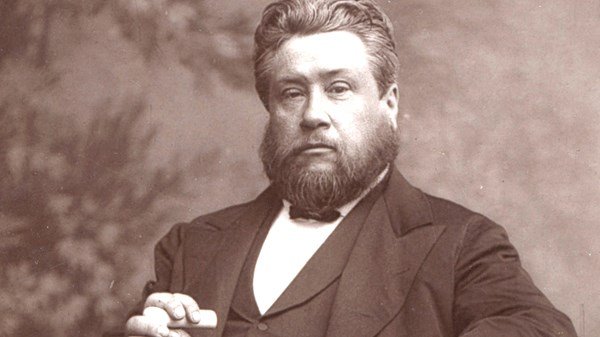The Need for Jesus
Video Timeline
WELCOME
TALK with Pete Farrington
WORSHIP
CONVERSATION STREET with Matt & Anna
The Need for Jesus
— Pete Farrington
Today we are continuing our series on the Gospel of John, and I'll be walking us through John chapter 4, verse 43 to John chapter 6, verse 24.
There's an awful lot in there and there's no way that we can look at it all in detail today. So I encourage you to read through it for yourself. But this passage continues in its series of four interactions that Jesus has with very different individuals. John chapter three begins with the very famous conversation that Jesus has with Nicodemus, who was a Pharisee and a ruler of the Jews. And Jesus brings this man a strong challenge, telling him, No, you haven't understood the scriptures. The whole thing points to me, and you need to be born again.
Then in John chapter four, Jesus interacts with the Samaritan woman at the well, and he confronts her about her sin and then comforts her with the gospel. It's a brilliant conversation and the woman is doing her best to avoid the challenge. Trying to change the topic again and again. But Jesus gets her there in the end. Then after that, we see Jesus' encounter with a Roman official who was probably a Roman Centurian in the service of Herod Antipas.
We will come back to this guy in a minute, but after that, Jesus then heals an invalid in John chapter five. And he brings this man a challenge too. I encourage you to read it, but it's after that healing that tension then really starts to spike between Jesus and the Jews. And Jesus makes a lot of outrageous claims about himself.
Well, they're outrageous if they're not true. And he becomes even more of a controversial figure, as a result of that. But going back to those four encounters, the first thing that really struck me was just how different these four people were. So they were different ethnicities, different strata of society, different levels of societal influence and being accepted by society, different classes. But there are also striking similarities across all four encounters. And I think the first one to note is that they all come to Christ in the exact same manner, with great need and with great longing, but with more need than they were even aware of at first, just like us all.
And Jesus meets with each individual and treats them as such and he sees beyond their felt need. We live in very strange times where many are trying to slice up all of reality into neat categories of those who are oppressed and those who are oppressors and really pitting one group against another. And in many cases, confusing their hatred of one group for their love of another.
But Jesus did not interact with these people according to how the world might have perceived them or how we would perceive people today according to where everyone is placed on the oppressor-oppressed spectrum. So he didn't say, Oh, a poor, dirty, invalid. But he also didn't say, Oh, a privileged man in a position of power, gross!
We see many times in scripture that Jesus shows that God shows no partiality, and that to do so is sin. We also see from these four interactions that Jesus had a clear challenge for each person. So I really encourage you to walk through the entirety of today's passage in your own time.
Jesus & the Roman Official
But, for now, I'd like to hone in on Jesus's encounter with the Roman official, which is in John chapter 4, verse 46. It says,
“So he came again to Cana in Galilee, where he had made the water wine. And at Capernaum there was an official whose son was ill. When this man heard that Jesus had come from Judea to Galilee, he went to him and asked him to come down and heal his son, for he was at the point of death.
So Jesus said to him, “Unless you see signs and wonders you will not believe.” The official said to him, “Sir, come down before my child dies.” Jesus said to him, “Go; your son will live.” The man believed the word that Jesus spoke to him and went on his way. As he was going down, his servants met him and told him that his son was recovering.
So he asked them the hour when he began to get better, and they said to him, “Yesterday at the seventh hour the fever left him.” The father knew that was the hour when Jesus had said to him, “Your son will live.” And he himself believed, and all his household. This was now the second sign that Jesus did when he had come from Judea to Galilee.”
So just notice the way that Jesus responds to this man's request. It is absolutely not an answer that I can imagine would ever console anyone in such a situation. Jesus said to him, Unless you see signs and wonders, you will not believe.
So this man's son is on his deathbed and Jesus is this guy's last hope. And this is what Jesus said. Unless you see signs and wonders, you will not believe. The Greek terms used in this verse are plural. So Jesus is saying, You people, it's like you people want signs and wonders, and if you don't get them, you people will not believe.
I imagine, to the official, that this response would've seemed like rejection. Like, okay, that's it. There's nothing more I can do. And at first glance, it feels really cold and harsh. I mean, just imagine being his disciples like, Oh Jesus, what are you doing? This is not the time, this man's son is on his deathbed, have a bit of compassion, but Jesus is setting up a challenge for the official.
Are you willing to trust me without seeing the proof?
So we really have to ask the question, what is Jesus' ultimate concern here? He wants to develop and perfect a weak faith.
I heard a friend say just last week, that God cares more about your character than your comfort. She was absolutely right. God cares more about your sanctification. That is the process of him making you more like him than he does about your current situation. Now the official responds by saying, Sir, come down before my child dies. So it's almost like what Jesus said has gone in one ear and come out the other.
Jesus is trying to make a theological point and the man clearly had some level of faith, like he clearly to some degree believes that Jesus can heal his son. Otherwise, he wouldn't have made the trip if his son is on his deathbed. Maybe he'd heard the story of how Jesus had turned water into wine. But Jesus was saying, I can do far more than what you are asking. Do you think I need to come with you in order to heal your boy? Do you think I'm hindered by the constraints of time and space?
But more importantly, Jesus was saying, you need far more than what you are asking. But the man is just in absolutely no state of mind to hear. He's like, what has this got to do with my dying son? And he just repeats the same request almost as if he hadn't heard what Jesus had said. But Jesus then says, Go, your son will live.
I think what's really interesting here and what is quite easy to miss is that there is a "No" implied in Jesus's response. He says no to part of the man's request, and he says no to the part without which the man thought the miracle wouldn't be possible. Jesus says, No, I'm not coming down with you.
An old-school theologian called Charles Spurgeon said this, about this man,
Here, then, is the weakness of your faith. Though there is much excellence in it because it makes you pray, there is some fault in it because it makes you imprudently prescribe to the Almighty how he shall bless you—makes you in effect to impugn his sovereignty, and leads you ignorantly to dictate to him in what form the promised boon shall come.
— Charles Spurgeon
And I think Spurgeon's absolutely right. The way that this man responds to Jesus' challenge and I think the way that we so often do, puts us above God and dictates to him how it is that he should answer our prayer, by what deadline, in what manner, and whether or not he should even grant us our requests.
But the man believed the word that Jesus spoke to him and went on his way. So he took Jesus at his word and left him. Imagine! Imagine walking away from Jesus, whom you see as your last hope without even being given a sign as evidence of the miracle. You're just going off this story that you've heard about water being turned into wine and just taking this man's word. And we see here that faith is really trust and obedience. It is not enough to merely know something. So the man clearly knew something of Jesus. Like he's maybe heard the story about the wedding in Cana. But it isn't enough to simply acquire knowledge and subscribe to or affirm a particular set of statements about God, that isn't what faith is.
Faith is to depend on him and to act in accordance. Do you trust that you can lean into him with the weight of all your need, all your guilt, your shame, your hopes, and your longings? Do you believe the totality of who he is and all that he says about himself and not just the stuff that gives you a warm, fuzzy feeling during a worship song? Not just when the water gets turned into wine, but when you have to simply take him at his word, turn around and go home. It's astonishing. Spurgeon then goes on to say,
That is an heroic faith which believes Christ in the teeth of a thousand contradictions. When the Lord gives you that faith, you can say, "I consult not with flesh and blood. He who said to me, 'Believe and be saved,' gave me grace to believe, and I therefore am confident that I am saved. When I once cast my soul, sink or swim, upon the love and blood and power of Christ, though conscience give no witness to my soul, though doubts distress me and fears plague me, yet it is mine to honor my Master by believing his Word, though it be contradictory to sense, though reason rebel against it, and present feeling dare to give it the lie."
-- Charles Spurgeon
I think for quite some time now, there's been a huge amount of emphasis placed on the goodness of God and that God has good things in store for you. And I've no problem with this at all, but I do think that our problem is that all too often we go around, coming up with our own definition of what good means.
And I think there is a big problem when we focus on certain aspects of God's nature at the total expense of others. So in this instance, God's sovereignty, God's god-ness, that he is not man, and we are not God. And we end up with a minuscule box that we're trying to cram God into, to shape him into. Some form that really looks as much like us as possible, and a box which we could never fit him.
A verse like this, for example, from Isaiah 55,
“For my thoughts are not your thoughts, neither are your ways my ways, declares the Lord. For as the heavens are higher than the earth, so are my ways higher than your ways and my thoughts than your thoughts.”
We are not God and we cannot dictate to God how it is that he should deal with us. We have to take him at His word and we have to come to the scriptures and see how it is that God defines good and how it is that God has revealed himself and God is concerned with your ultimate good, namely that you find deep lasting joy in him, not just temporary fleeting joy in your immediate circumstances, and he's far more concerned with your eternal good than your tomorrow's good.
And when we decide that God being good means that he will bring about a certain outcome in a certain way by a certain deadline, we actually do set ourselves above God and we twist his arm to try and get him to do things the way that we would do them. And I think this is really a form of idolatry or self-worship when we try to fashion our God in our own image instead of allowing him to conform us to his image.
I've thought about these things a lot since becoming a dad, because many of the things that I do for my son's good, probably do not feel all that pleasant from his perspective. So like he absolutely hates it when I wash his hair, when I brush his teeth, when he was really little, he used to hate it when I had to use a nasal aspirator. It was really gross and you gotta suck the snot out of his nose. But I do those and I didn't particularly enjoy it, but I do those things for his good and because I have an understanding of what good is that he's completely incapable of grasping, at least for now.
And we all know that if a child is never told no, they grow up to be spoiled, selfish, and just not very pleasant people to be around. And there have been many times in my walk with God where I've pleaded with God for a certain outcome that I was convinced would be good, only in time to see that God had a better idea.
You may have heard of a missionary called Elisabeth Elliot. Her husband was killed by the Auca people of Ecuador. I think in 1956, they were trying to reach the Auca people with the gospel. And the incredible woman, Elizabeth Elliot said this,
God never witholds from His child that which His love and wisdom call good. God's refusals are always merciful -- "severe mercies" at times but mercies all the same. God never denies us our hearts desire except to give us something better.
-- Elisabeth Elliot
So he never withholds from us those things which his love and his wisdom call good. And we see in John chapter 4 verse 52, that as the man, as the official is on his way home, he's brought the news that his son is well, he's alive. And they said to him that it was yesterday, the seventh hour that the fever left him. And the father knew that was the hour when Jesus had said to him, your son will live. And he himself believed and all his household. So the man's son was healed at the very moment that Jesus had spoken the word. But he didn't find out until the following day.
I was reminded when reading this something that a preacher called John Piper said,
“God is always doing 10,000 things in your life, and you may be aware of three of them.”
-- John Piper
So God's doing 10,000 things in your life at all times. And that's even when he gives you a partial No. Or maybe even a total No. Think of Elisabeth Elliott. Her husband was killed by the very people that they had gone to reach with the gospel.
But we see it in this passage when we take a step back, the progression of this man's faith. In the beginning, Jesus says, unless you see signs and wonders, you will not believe. And then later, we see that the man believed the word that Jesus had spoken and went on his way. And then, in the end, we see this man receive salvation along with this whole house. So, in the middle there, it was like this man believed that Jesus was gonna heal his son. But then at the end of the story, we see that his faith is perfected and this man believes in Jesus, not just for him to do this one thing for him, but to trust him.
And we see that this is actually the purpose John tells us towards the end of John's gospel that this is the purpose of the entire book. He says in John 20, verse 31,
“but these are written so that you may believe that Jesus is the Christ, the Son of God, and that by believing you may have life in his name.”
Jesus himself said in John 5 verse 24,
“Truly, truly, I say to you, whoever hears my word and believes him who sent me has eternal life. He does not come into judgment, but has passed from death to life.”
And so, I go back to those words of Charles Spurgeon that we must cast everything that we have upon the love, the blood and the power of Christ and for those who do, we are transformed and we pass from death to life, and we have life in Jesus.
CONVERSATION STREET
With: Matt Edmundson & Anna Kettle
What is Conversation Street?
Conversation Street is part of our live stream, where the hosts (in this case, Matt & Anna) chat through Petes's talk and answer questions that were sent in through the live stream. You can watch the conversation in the video, it starts 32 mins 31 s into the live stream, or you can go straight there by clicking here. This week’s questions and topics of conversation are:
What stood out to you from Pete's talk?
What can we understand from John Piper's quote about God doing ten thousand things at all times in our lives and we being aware of three of them?
How can our relationship with God sometimes become like a self-improvement plan and how can we refrain from it?
How is faith trusting in God and obeying him through life's journey?
Why is it easier to walk through life a little bit open-handed rather than holding on too tight to things?
What does it mean when we say that "God is good"?
How can we be certain that God has a plan for us and it is good?
More Bible Verses on the Need for Jesus
2 Corinthians 1:3,4 - Blessed be God, even the Father of our Lord Jesus Christ, the Father of mercies, and the God of all comfort; Who comforteth us in all our tribulation, that we may be able to comfort them which are in any trouble, by the comfort wherewith we ourselves are comforted of God.
Ephesians 2:5 - That even though we were dead because of our sins, he gave us life when he raised Christ from the dead. (It is only by God’s grace that you have been saved!)
John 3:16 - For God so loved the world that he gave his one and only Son, that whoever believes in him shall not perish but have eternal life.
Genesis 1:27 - So God created mankind in his own image, in the image of God he created them; male and female he created them.
Genesis 1:4 - And God saw that the light was good. And God separated the light from the darkness.
1 Timothy 2:5 - For there is one God and one mediator between God and mankind, the man Christ Jesus,
1 Peter 5:7 - Casting all your anxieties on him, because he cares for you.
2 Corinthians 12:9 - But he said to me, “My grace is sufficient for you, for my power is made perfect in weakness.” Therefore I will boast all the more gladly of my weaknesses, so that the power of Christ may rest upon me.














